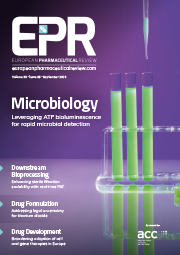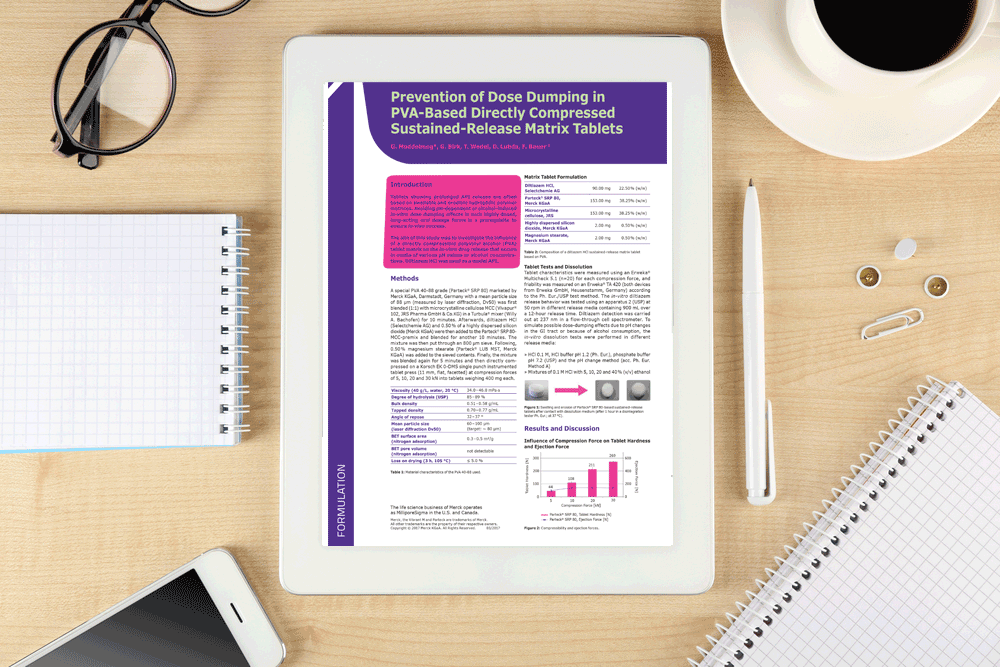Poster: Prevention of dose dumping in PVA-based directly compressed sustained-release matrix tablets
Posted: 3 July 2017 | Merck | No comments yet
This poster investigates the influence of a directly compressible polyvinyl alcohol (PVA) tablet matrix on the in-vitro drug release that occurs in media of various pH values or alcohol concentrations…
Tablets showing prolonged API release are often based on swellable and erodible hydrophilic polymer matrices. Avoiding pH-dependent or alcohol-induced in-vitro dose dumping effects in such highly dosed, long-acting oral dosage forms is a prerequisite to ensure in-vivo success.
The aim of this study was to investigate the influence of a directly compressible polyvinyl alcohol (PVA) tablet matrix on the in-vitro drug release that occurs in media of various pH values or alcohol concentrations. Diltiazem HCl was used as a model API.
The life science business of Merck KGaA, Darmstadt, Germany operates as MilliporeSigma in the U.S. and Canada.
This poster is restricted - login or subscribe free to access


Why subscribe? Join our growing community of thousands of industry professionals and gain access to:
- bi-monthly issues in print and/or digital format
- case studies, whitepapers, webinars and industry-leading content
- breaking news and features
- our extensive online archive of thousands of articles and years of past issues
- ...And it's all free!
Click here to Subscribe today Login here










